For Months, Every Morning When My Daughter Was In Preschool, I Watched Her Construct An Elaborate Castle
For months, every morning when my daughter was in preschool, I watched her construct an elaborate castle out of blocks, colorful plastic discs, bits of rope, ribbons and feathers, only to have the same little boy gleefully destroy it within seconds of its completion.
No matter how many times he did it, his parents never swooped in BEFORE the morning’s live 3-D reenactment of “Invasion of AstroMonster.” This is what they’d say repeatedly:
“You know! Boys will be boys!”
“He’s just going through a phase!”
“He’s such a boy! He LOVES destroying things!”
“Oh my god! Girls and boys are SO different!”
“He. Just. Can’t. Help himself!”
I tried to teach my daughter how to stop this from happening. She asked him politely not to do it. We talked about some things she might do. She moved where she built. She stood in his way. She built a stronger foundation to the castle, so that, if he did get to it, she wouldn’t have to rebuild the whole thing. In the meantime, I imagine his parents thinking, “What red-blooded boy wouldn’t knock it down?”
She built a beautiful, glittery castle in a public space.
It was so tempting.
He just couldn’t control himself and, being a boy, had violent inclinations.
She had to keep her building safe.
Her consent didn’t matter. Besides, it’s not like she made a big fuss when he knocked it down. It wasn’t a “legitimate” knocking over if she didn’t throw a tantrum.
His desire — for power, destruction, control, whatever- - was understandable.
Maybe she “shouldn’t have gone to preschool” at all. OR, better if she just kept her building activities to home.
I know it’s a lurid metaphor, but I taught my daughter the preschool block precursor of don’t “get raped” and this child, Boy #1, did not learn the preschool equivalent of “don’t rape.”
Not once did his parents talk to him about invading another person’s space and claiming for his own purposes something that was not his to claim. Respect for her and her work and words was not something he was learning. How much of the boy’s behavior in coming years would be excused in these ways, be calibrated to meet these expectations and enforce the “rules” his parents kept repeating?
There was another boy who, similarly, decided to knock down her castle one day. When he did it his mother took him in hand, explained to him that it was not his to destroy, asked him how he thought my daughter felt after working so hard on her building and walked over with him so he could apologize. That probably wasn’t much fun for him, but he did not do it again.
There was a third child. He was really smart. He asked if he could knock her building down. She, beneficent ruler of all pre-circle-time castle construction, said yes… but only after she was done building it and said it was OK. They worked out a plan together and eventually he started building things with her and they would both knock the thing down with unadulterated joy. You can’t make this stuff up.
Take each of these three boys and consider what he might do when he’s older, say, at college, drunk at a party, mad at an ex-girlfriend who rebuffs him and uses words that she expects will be meaningful and respecte, “No, I don’t want to. Stop. Leave.”
The “overarching attitudinal characteristic” of abusive men is entitlement
More Posts from Mjollydragon and Others
*transgender but otherwise this is a nice list. Off the top of my head, I can also add Fires of the Faithful/ Turning the Storm to the fantasy section -- it’s mostly a fantasy novel, but it has two very prominent lesbian characters.
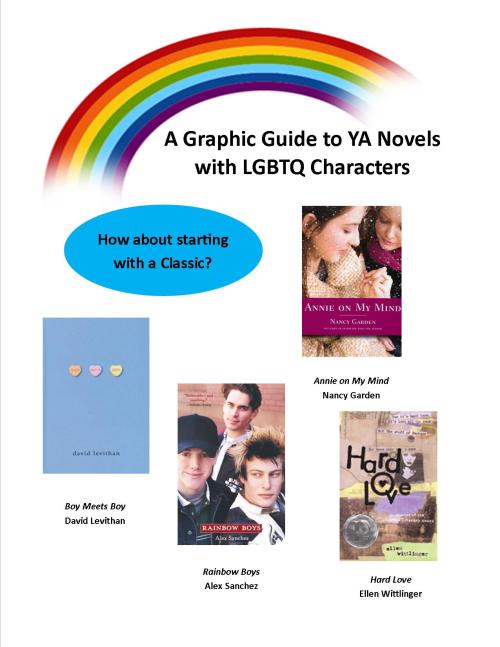
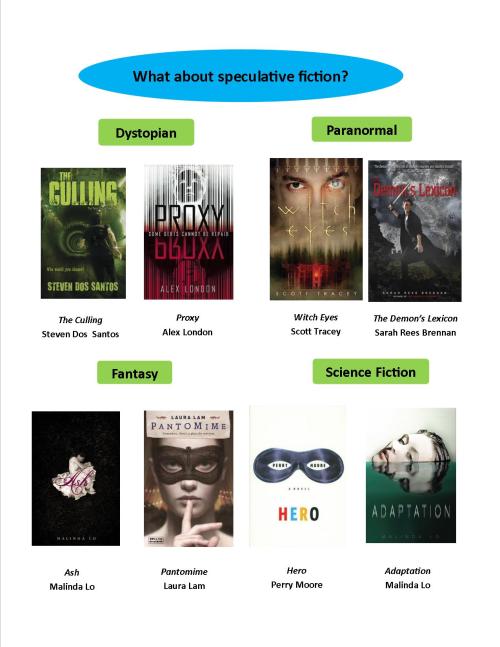
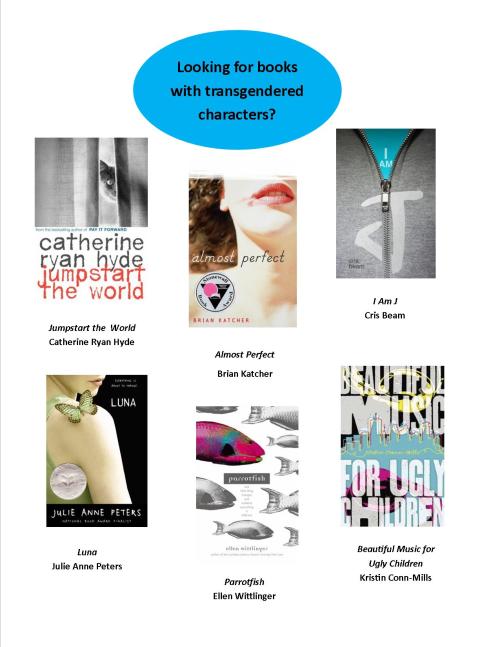

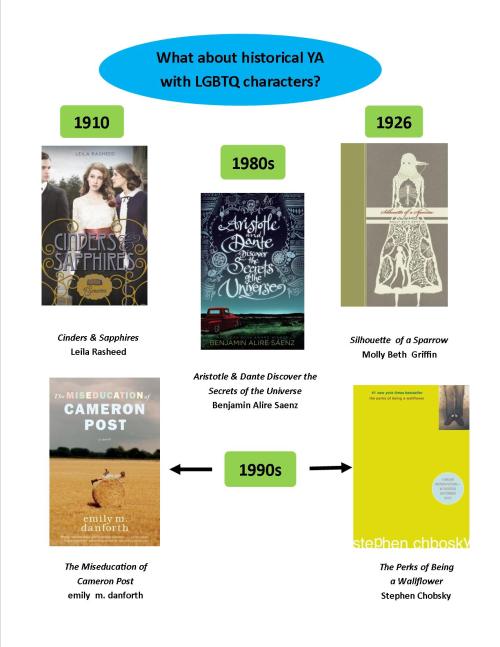
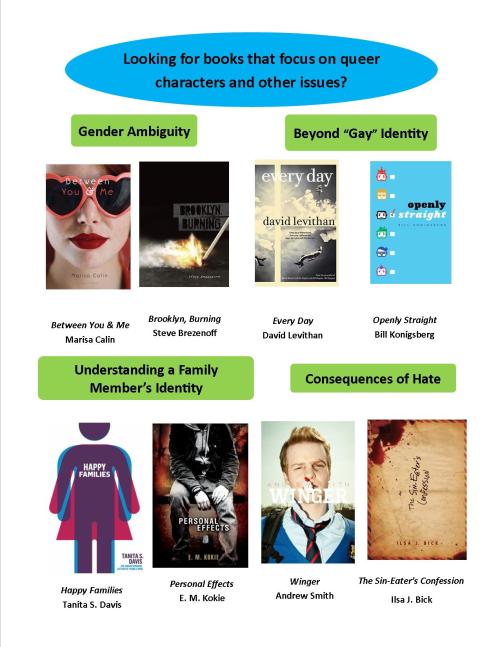
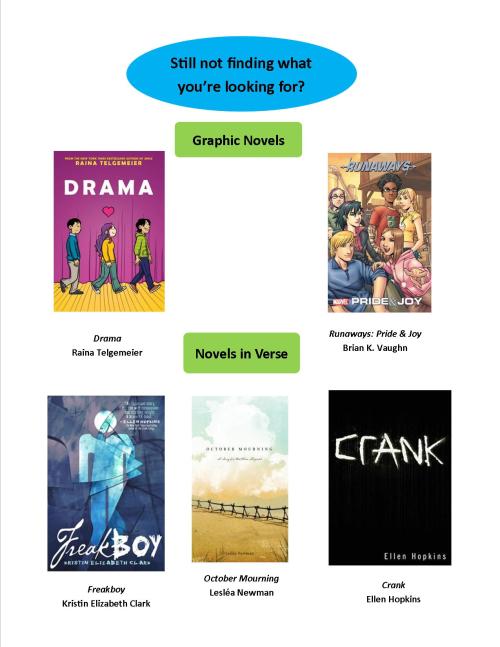
This is a list I made for YALSA’s The Hub on the wide range of YA literature featuring LGBTQ characters. See the full post and a downloadable pdf here.
John 6:51-53 says, “ I am the living bread that came down from heaven. If anyone eats of this bread, he will live forever. And the bread that I will give for the life of the world is my flesh.”52 The Jews then disputed among themselves, saying, ‘How can this man give us his flesh to eat?’ 53 So Jesus said to them, “Truly, truly, I say to you, unless you eat the flesh of the Son of Man and drink his blood, you have no life in you.” That’s fairly unambiguous: his followers are confused about why Jesus would give them flesh to eat, whereas they wouldn’t be confused about being giving bread to eat. They also would not refer to ordinary bread as flesh.
In addition, according to Luke 22:19 and Matthew 26:26-28, Jesus, when giving the disciples the bread/flesh at the Last Supper, said, “This is my body given for you.” He didn’t say, “This is a metaphor for my body.” He said, “This is my body.” Although Jesus frequently spoke in parables, we know from Mark 4:34 that he would explain the parables to his disciples: : “When he was alone with his own disciples, he explained everything.” If communion was metaphorical, Jesus would have explained it. There’s no indication that it was meant as a metaphor.
Seriously, one of the important tenets of Protestantism is “sola scriptura,” so why would you ignore the clear statements of Scripture on this topic?
Okay, new rule: if you regularly consume the blood and flesh of a demigod in a room full of chanting elders you’re not allowed to call other religions primitive and evil
reblog if you believe that gender neutral bathrooms should be available everywhere
Ted Cruz just suspended his campaign. This means that Trump will almost certainly be the Republican nominee.
This is going to be an interesting six months, in the most Minnesotan sense of that word possible.
What were your poems about? You’ve gotten me curious.
My English teacher apologetically told me my poems were to controversial to tell in class (we’re in the poetry unit right now) and I can’t tell if I should be proud, concerned, or miffed.
Unpopular Opinion
I enjoyed reading Harry Potter and the Cursed Child.
AU where Dumbledore’s Army uses the Chamber of Secrets instead of the Room of Requirement
Ultimate security as Harry is the only one capable of opening it.
Myrtle proudly spending her time acting as a guard/lookout.
Later, Harry diligently teaching Ron, Hermione, and a few choice others, like Neville, how to mimic parseltongue so that they can open it too.
Muggleborns experiencing vicious satisfaction that they’re using this chamber as a place of education and defense, reclaiming the very space Slytherin built to rid the school of their presence.
Hermione methodically dismantling the basilisk’s corpse, covertly selling the priceless ingredients to potion masters, using the funds to continue their work - buying books and battle robes and new wands for those who can’t afford it.
(Hermione saving a portion of those ingredients for her own research, straightening in triumph when she learns what basilisk venom does to horcruxes, knowing she has vials of it hidden up in her room).
Harry reverently adding the Chamber of Secrets to the Marauder’s Map, proudly continuing his family’s work and reveling in the difference they’re making.
These students - these kids - choosing to train in a dark, horrifying place that was never meant for them. Learning spells amongst shadows, growing stronger in inches of murky water, the smell of a decomposing corpse in their noses, memories of all that had happened here haunting them. They know this is what war is really like and it helps to push them forward.
I think the difference here is that minus-zero-blogs is talking about systemic sexism, whereas johnhocksbur is talking about specific incidents of sexism. Men will rarely be victims of systemic sexism (although there are occasional instances, such as how it’s socially acceptable for a woman to wear either a dress or pants but not for a man to wear a dress); however, they may be victims of specific instances of sexism. People are just sexist in specific instances against women more often.
I will also note that your sources both mention sexism against women as being more frequent or more common than sexism against men.
Sexism can be against anyone. And thinking that women can't be as savage and heartless as men is sexist against everybody.
actually women can’t be sexist toward men
women can hate men, or be biased against them, but sexism requires privilege and power
basically it’s the difference between an isolated incident and society being completely rigged against you
being a female means needing to see 10 different doctors to get a proper diagnosis because they always think you’re exaggerating and/or lying
This is by no means an original take, and I probably did not spend as much time as I should have editing the writing into being a coherent take, but:
In an awful lot of movies, Steve Rogers would have been right.
(Or, well, treated-as-right by the narrative, at least; in some of those movies many, many people would have died for his idealism, but this wouldn’t have been treated as wrong.)
When faced with this sort of explicit trolley problem, there are two main messages in pop culture: either you should never pull the level (you might kill a named character) or you should find a way to save everyone. For instance, take The Last Jedi: the narrative treats it as correct that Rose stopped Finn from sacrificing his life, not because his plan wouldn’t have worked, but more-or-less because we don’t trade lives. (Other examples: every fucking YA novel ever. ‘You can choose between your significant other... or saving the world.’ ‘Bye, world.’)
(She is absolutely trading lives, just not in the direction that, you know, saves people.)
(This is not to say that characters never trade off lives! The really obvious example here is that most movies are totally fine with killing the villain to protect innocents, although I’m pretty sure the message is generally closer to “the lives of villains don’t matter” than “pull the lever.” Characters will also sometimes do things like choose which of multiple locations to go to, which is generally understood in their narratives to be trading off lives at least a little. But when there’s this sort of explicit setup, the correct answer as portrayed in the narrative is almost never “pull the lever.”)
Now, I actually can think of counterexamples -- Wrath of Khan is very clear that you should pull the lever, for instance, and since I brought up The Last Jedi earlier I might as well mention Holdo’s choice at the end. But in said counterexamples, the person making the choice is almost always choosing to kill themself, not another person, and they usually would have died anyway.
But when characters are faced with the explicit choice of killing someone, maybe multiple someones, or letting far more people die, the treated-as-correct choice is almost never to kill them.
And I’m glad that we have a movie where that’s not the case.
-
 deadgirldreaming reblogged this · 1 month ago
deadgirldreaming reblogged this · 1 month ago -
 deadgirldreaming liked this · 1 month ago
deadgirldreaming liked this · 1 month ago -
 jointed-custody liked this · 2 months ago
jointed-custody liked this · 2 months ago -
 wyrmlover reblogged this · 2 months ago
wyrmlover reblogged this · 2 months ago -
 wyrmlover liked this · 2 months ago
wyrmlover liked this · 2 months ago -
 bobthebenevolentpirate reblogged this · 2 months ago
bobthebenevolentpirate reblogged this · 2 months ago -
 dancing-tiefling reblogged this · 2 months ago
dancing-tiefling reblogged this · 2 months ago -
 dancing-tiefling liked this · 2 months ago
dancing-tiefling liked this · 2 months ago -
 odalibuc reblogged this · 2 months ago
odalibuc reblogged this · 2 months ago -
 bunnymoon-phase reblogged this · 2 months ago
bunnymoon-phase reblogged this · 2 months ago -
 bunnymoon-phase liked this · 2 months ago
bunnymoon-phase liked this · 2 months ago -
 fairykukla reblogged this · 2 months ago
fairykukla reblogged this · 2 months ago -
 colorfulbreadpanda liked this · 3 months ago
colorfulbreadpanda liked this · 3 months ago -
 spontaneoustangent reblogged this · 3 months ago
spontaneoustangent reblogged this · 3 months ago -
 rhoboat77 liked this · 4 months ago
rhoboat77 liked this · 4 months ago -
 justforfollowingpeople liked this · 4 months ago
justforfollowingpeople liked this · 4 months ago -
 kiki-miserychic reblogged this · 4 months ago
kiki-miserychic reblogged this · 4 months ago -
 deepfriedfatality liked this · 5 months ago
deepfriedfatality liked this · 5 months ago -
 massivebreadnight liked this · 8 months ago
massivebreadnight liked this · 8 months ago -
 quixotic-designs reblogged this · 9 months ago
quixotic-designs reblogged this · 9 months ago -
 nijiryuu reblogged this · 10 months ago
nijiryuu reblogged this · 10 months ago -
 writeywritey reblogged this · 10 months ago
writeywritey reblogged this · 10 months ago -
 idontliketomatoesleavemealone reblogged this · 1 year ago
idontliketomatoesleavemealone reblogged this · 1 year ago -
 residentlurker253 liked this · 1 year ago
residentlurker253 liked this · 1 year ago -
 heureuxvivant liked this · 1 year ago
heureuxvivant liked this · 1 year ago -
 pardon-my-obsessive-tendencies reblogged this · 1 year ago
pardon-my-obsessive-tendencies reblogged this · 1 year ago -
 oblivionates liked this · 1 year ago
oblivionates liked this · 1 year ago -
 shukkets reblogged this · 1 year ago
shukkets reblogged this · 1 year ago -
 forthesigother reblogged this · 1 year ago
forthesigother reblogged this · 1 year ago -
 wintersweetbou liked this · 1 year ago
wintersweetbou liked this · 1 year ago -
 infamousbrad liked this · 1 year ago
infamousbrad liked this · 1 year ago -
 forthesigother reblogged this · 1 year ago
forthesigother reblogged this · 1 year ago -
 fairykukla reblogged this · 1 year ago
fairykukla reblogged this · 1 year ago -
 fairykukla liked this · 1 year ago
fairykukla liked this · 1 year ago -
 taonf liked this · 1 year ago
taonf liked this · 1 year ago -
 iridescent-lightning reblogged this · 1 year ago
iridescent-lightning reblogged this · 1 year ago -
 burymeinmelodies liked this · 1 year ago
burymeinmelodies liked this · 1 year ago -
 farkvicwinspeste liked this · 1 year ago
farkvicwinspeste liked this · 1 year ago -
 jesin00 reblogged this · 1 year ago
jesin00 reblogged this · 1 year ago -
 jesin00 liked this · 1 year ago
jesin00 liked this · 1 year ago -
 herpoetrygarden reblogged this · 1 year ago
herpoetrygarden reblogged this · 1 year ago -
 herpoetrygarden liked this · 1 year ago
herpoetrygarden liked this · 1 year ago -
 afloatingjay reblogged this · 1 year ago
afloatingjay reblogged this · 1 year ago